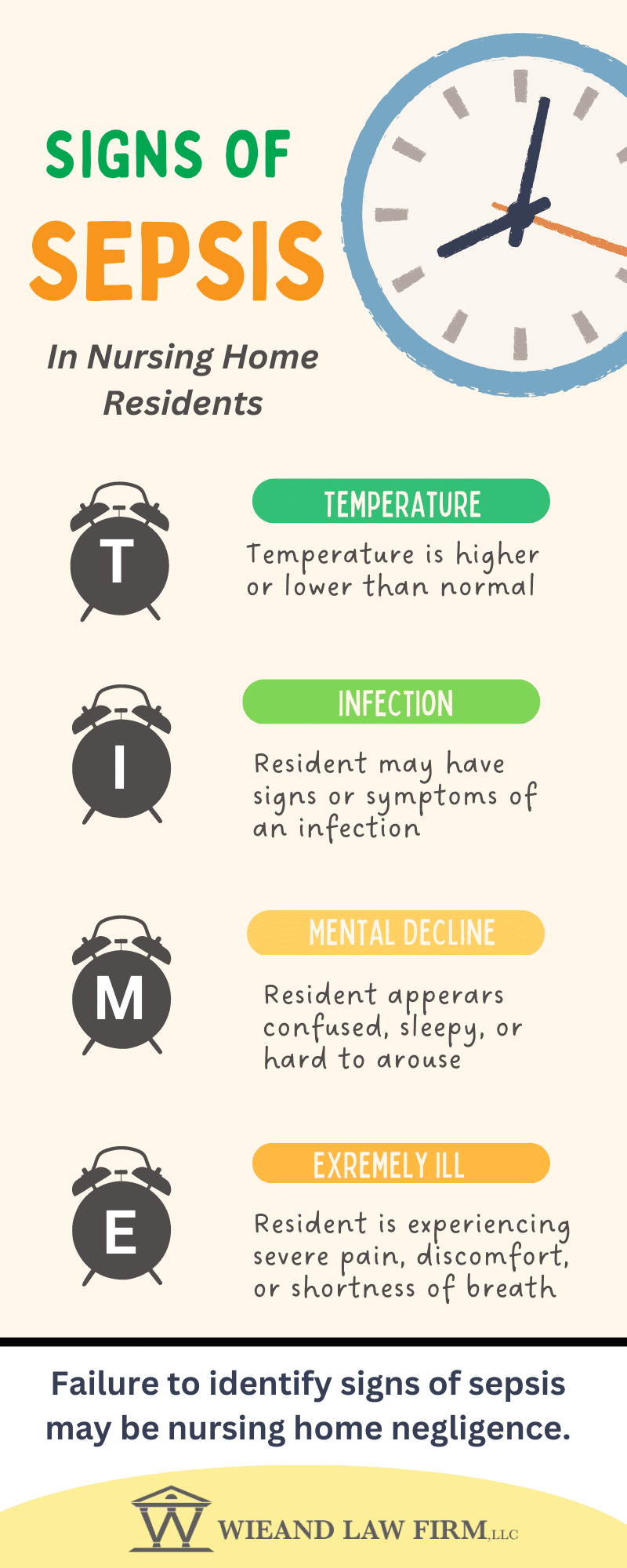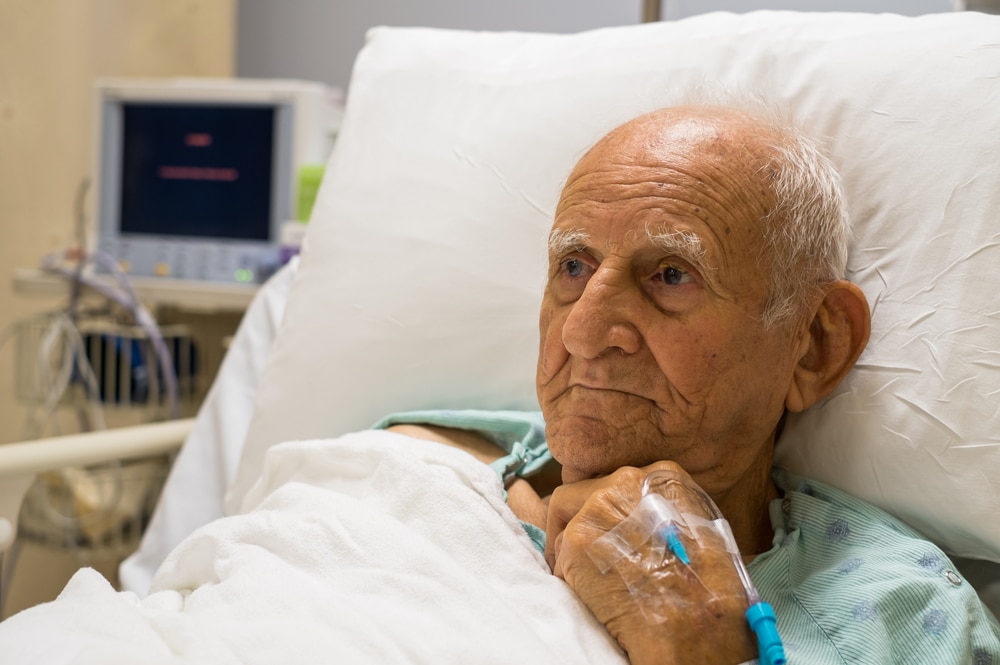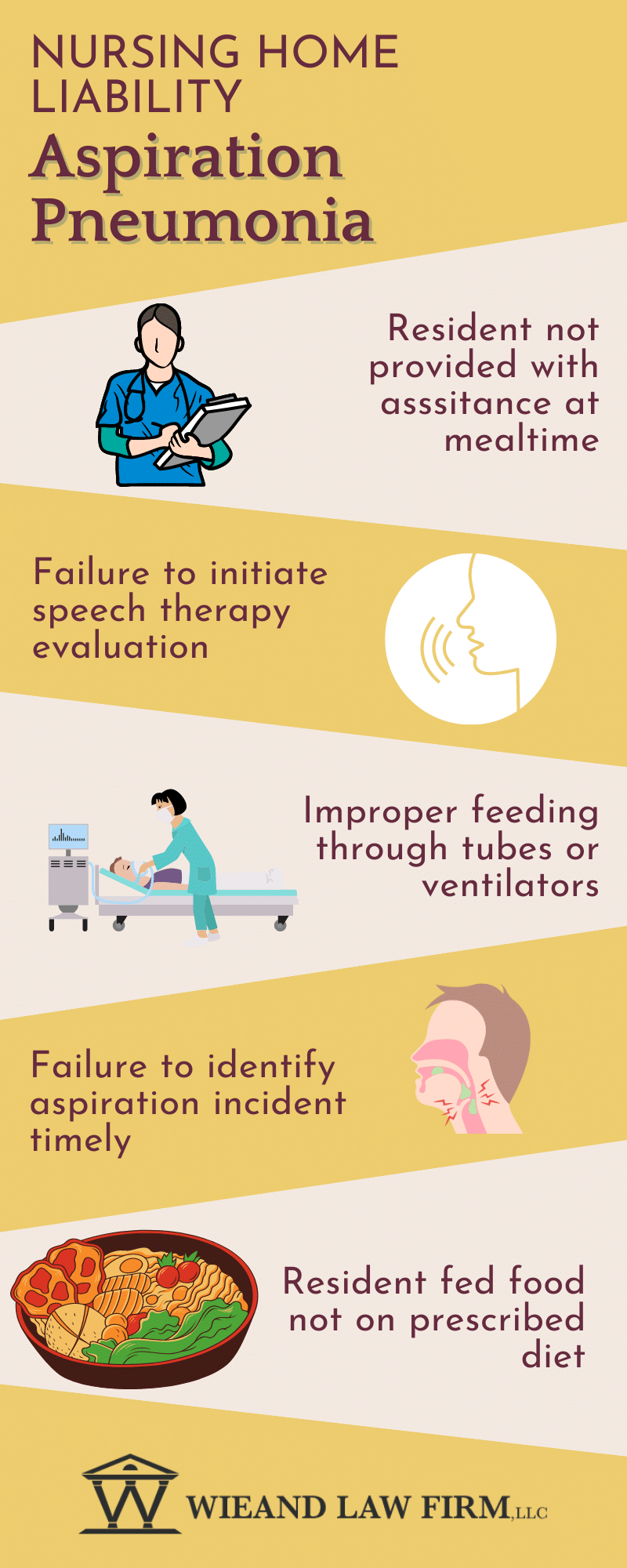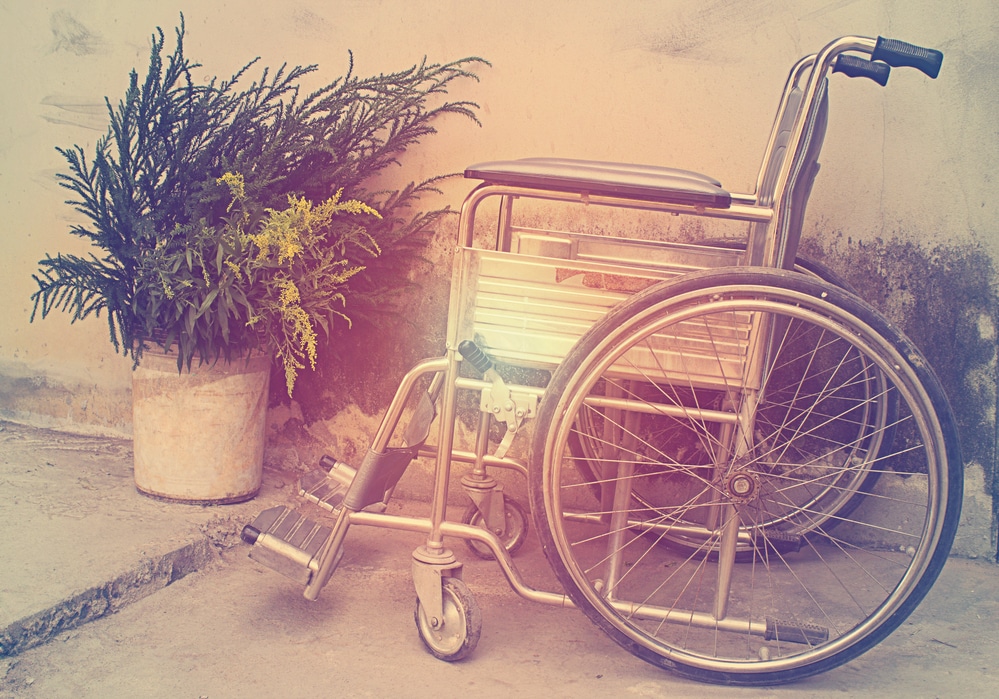 Infections are very common in the setting of long-term care facilities and represent a major cause of death among nursing home residents. Due to increased hospital admission costs and a rise in ICU hospital admissions, Philadelphia nursing homes and assisted living facilities are housing sicker and more disease susceptible patients. As a result, the frequency of preventable infections in long-term care residents is on the rise. Philadelphia nursing home lawyers at the Wieand Law Firm represent nursing home residents and their loved ones when a care facility acts negligently and the resident suffers a serious, preventable infection.
Infections are very common in the setting of long-term care facilities and represent a major cause of death among nursing home residents. Due to increased hospital admission costs and a rise in ICU hospital admissions, Philadelphia nursing homes and assisted living facilities are housing sicker and more disease susceptible patients. As a result, the frequency of preventable infections in long-term care residents is on the rise. Philadelphia nursing home lawyers at the Wieand Law Firm represent nursing home residents and their loved ones when a care facility acts negligently and the resident suffers a serious, preventable infection.
Because elderly individuals often have weakened immune systems, they are more susceptible to infections and can suffer serious complications. Accordingly, facilities must always be ready to deliver high−quality medical care to their residents.
Studies have estimated that 1.5 to 2 million infections occur in nursing homes and assisted living facilities each year. Some of the most common types of infections to occur in nursing homes are:
Nursing homes and long-term care facilities are prone to the spread of infection due to several common characteristics, such as residents being clustered in confined living spaces and participating in frequent group activities. Some residents are unable to perform basic hygiene due to cognitive impairment. Moreover, many residents have co-morbid underlying conditions that predispose them to infection.
Yes, guidance in the State Operations Manual (§483.80 Infection Control) requires that each nursing home provides an infection prevention and control program. Healthcare-associated infections (HAIs) cause significant pain and injury for nursing home residents and can have serious complications. Each nursing home must have Infection Prevention and Control Program to prevent the development and transmission of infections. This program must:
Nursing homes must designate an Infection Preventionist (IP) who has specialized training to oversee the program. Additionally, the nursing home must ensure that all staff follow the infection prevention standards and have the knowledge and skills pertaining to infection control policies and procedures.
 Can I Sue for a Nursing Home Infection?
Can I Sue for a Nursing Home Infection?Yes, nursing homes that act negligently may be sued when a resident contracts a serious infection. Nursing homes may be liable for an infection if:
Philadelphia nursing home lawyers at the Wieand Law Firm are well-versed in federal and state nursing home infection prevention and control laws. If you believe that nursing home negligence resulted in your loved one’s preventable infection, reach out to our attorneys for more information about your legal rights.
When a resident suffers an infection, you should immediately question whether the infection was preventable. Nursing homes must take certain precautions to prevent infections.
Not all infections are transmitted the same way. Therefore, nursing home must use both standard precautions and any additional transmissions-based precautions needed to prevent infection by a specific pathogen.
Steps a nursing home should take to prevent infections include:
Standard precautions are a set of infection control practices used to prevent transmission of infection. These measures should be taken when providing care to all residents, whether or not they appear to have an infection.
Transmissions-based precautions include steps that nursing facility staff should take, in addition to standard precautions, when caring for a resident with a known or suspected infection. The precautions needed will vary depending on the way that the infection is transmitted between people. Examples of transmission-based precautions include droplet precautions, airborne precautions, and contact precautions.
Depending on the infection that is identified, nursing homes may need to take some or all the following steps to prevent infections:
When nursing homes fail to take the necessary precautions to prevent infections, they may be held liable when harm occurs. Contact Philadelphia nursing home lawyers at the Wieand Law Firm if you believe nursing home negligence resulted in your loved one’s nursing home infection.
Philadelphia nursing home lawyers at the Wieand Law Firm handle nursing home negligence cases involving infections. Nursing homes can be held liable for failing to adequately prevent or treat infections.
Infections that spur nursing home lawsuits include:
The CDC defines sepsis as the body’s extreme response to an infection. It occurs when an infection triggers a chain reaction within your body, and it is life-threatening emergency. Complications from sepsis include tissue damage, organ failure, and death.
Infections that cause sepsis include urinary tract infections, skin infections, lung infections, and infections of the gastrointestinal tract.
For example, a resident who has a urinary tract infection may start to experience signs and symptoms of sepsis. Nursing home staff are responsible to monitor the resident for signs and symptoms of sepsis and take immediate action to procure necessary medical attention.
 Signs of Sepsis
Signs of SepsisThe Sepsis Alliance warns that while sepsis can affect anyone, it can be particularly dangerous to fragile nursing home residents or those with other medical conditions. Nursing home staff should have the training and education to spot the following signs of sepsis. Think of the word “TIME” when looking for signs of sepsis.
T – Temperature is higher or lower than normal
I – Resident may have signs or symptoms of an infection
M – Resident appears to have mental decline, such as confused, sleepy, or difficult to arouse
E – Resident Is Extremely Ill and experiencing severe pain, discomfort, or shortness of breath
Residents experiencing these symptoms should receive immediate medical treatment.
Sepsis can progress quickly. Nursing homes must ensure that their staff can identify early signs of sepsis so that residents can be treated timely. The three stages of sepsis are:
Signs of SIRS, including elevated or low body temperature, high heart rate, high respiratory rate, or abnormal white blood count occur. SIRS becomes sepsis when both an infection is present and 2 or more of the signs of SIRS are present.
Severe sepsis results in organ malfunction. This malfunction often stems from low blood pressure caused by the inflammation throughout the body. Organ dysfunction may be seen by decreased uring output, a change in mental status, or difficulty breathing.
Septic Shock is the last stage of sepsis. This stage is defined by extremely low blood pressure despite the provision of copious IV fluids. Mortality risk of individuals suffering from septic shock can be as high as 50%.
When a nursing home infection is undiagnosed, or misdiagnosed, it can lead to sepsis. Nursing homes can be liable if they fail to prevent an infection that causes sepsis, or if they fail to obtain proper medical care for a resident who has already developed sepsis. Examples of negligence care resulting in sepsis may include:
Contact Philadelphia nursing home lawyers at Wieand Law if you believe that negligence from a care facility caused your loved ones infection to result in sepsis.
Sepsis results in serious pain and illness for nursing home residents. Many residents who suffer from sepsis do not recover and ultimately pass away from the condition. Because of the extensive injuries caused by this condition, the average malpractice settlement for sepsis can reach around $250,000. Awards from jury verdicts for can be even higher, sometimes reaching $400,000.
The average malpractice settlements for sepsis are higher in nursing home negligence cases in which the resident passed away from sepsis complications. Talk with Philadelphia nursing home lawyers to see if you are able to file a wrongful death claim for your loved one’s sepsis death.
 Osteomyelitis Lawsuits
Osteomyelitis LawsuitsOsteomyelitis is a bone infection. In nursing homes, this infection is often the result of negligent wound care. Osteomyelitis can require extensive treatment, or even result in amputation. Philadelphia nursing home lawyers are often needed in these cases to represent injured victims who suffer severe injuries from an osteomyelitis infection.
Residents with osteomyelitis infections can experience multiple symptoms, such as:
Nursing home staff who fail to recognize the signs of osteomyelitis may be liable for medical malpractice.
Osteomyelitis can reduce the circulation of blood within the bone. This can cause osteonecrosis, otherwise known as “bone death.” Areas affected by osteonecrosis may require surgical removal through amputation.
Osteomyelitis can also cause septic arthritis, which occurs when the infection spreads to a nearby joint. Septic arthritis can destroy cartilage and cause permanent joint damage. This infection can also increase a resident’s risk of developing squamous cell cancer and needing an amputation.
Osteomyelitis is a very serious condition. If not treated properly, the infection can spread to other joints and parts of the body. This can spread to the bloodstream, result in widespread infection, and lead to sepsis. Individuals suffering from osteomyelitis have a significantly higher mortality risk than those without chronic osteomyelitis.
Philadelphia nursing home lawyers can file a lawsuit if your loved one contracted a serious MRSA infection while at a nursing home and seek maximum compensation for their injuries. MRSA is a Methicillin-resistant Staphylococcus aureus infection. This infection does not respond well to traditional antibiotics and patients have a greater chance of developing serious complications, such a sepsis or pneumonia.
Many residents at nursing homes are at higher risk of acquiring a multidrug resistant organism, such as MRSA, because their immune system is weaker due to aging or other illnesses. Risk factors for MRSA include the use of IV catheters, treatment with multiple antibiotics, and long hospitalizations. Over 30% of people who develop sepsis from a MRSA infection will die from the infection.
Nursing homes are a hot bed for MRSA infections. This organism flourishes in tight living conditions and in medical devices, such as catheters and breathing tubes, that are not properly cared for. Poor sanitation can allow the virus to quickly spread.
Many nursing homes fail to carry out the infection control practices needed to prevent MRSA infections. In fact, between 208-2019, nearly 40% of nursing homes failed to meet minimum infection prevention and control requirements required by federal law. Nursing home staff who fail to perform hand hygiene, follow contract precautions, and use proper infection control techniques during wound care put their residents at risk of contracting MRSA and other multi drug resistant organisms (MDROs).
Contact Philadelphia nursing home lawyers at the Wieand law Firm for legal counsel if your loved one suffered serious harm from a MRSA infection to learn more about your legal options. You may be eligible to file a MRSA lawsuit to seek compensation for the damages you sustained from the infection.
A MRSA lawsuit can seek compensation for the harm you sustained when a nursing home’s negligence resulted in your avoidable infection. Treatment of a MRSA infection can be very expensive and require IV antibiotics and a lengthy hospital stay. By working with Philadelphia nursing home lawyers, you can seek compensatory damages to pay for the losses you suffered You may be able to collect compensation for hospital bills, prescription costs, rehabilitation, and your pain and suffering.
Nursing homes are tasked with caring for the elderly and medically fragile. Therefore, medication conditions as serious as pneumonia must be diagnosed and treated in a timely manner to prevent serious harm. Aspiration pneumonia is an infection that occurs when food travels down the tracheal pipe and enters the lungs instead of the stomach and causes an infection.
 Causes of Aspiration Pneumonia in Nursing Homes
Causes of Aspiration Pneumonia in Nursing HomesBecause elderly residents with swallowing difficulties are at higher risk of suffering from aspiration pneumonia, its imperative that nursing homes take all the proper steps to prevent the infection. Sadly, failure of nursing homes to act can result in a resident suffering from this infection. Some common causes of aspiration in nursing homes include:
The Philadelphia nursing home lawyers at the Wieand Law Firm are prepared to tackle medical negligence cases involving aspiration pneumonia. We take your claim serious and work with leading experts in gerontological medicine to investigate and prepare your case. If you suspect that your loved one was harmed by a preventable aspiration pneumonia, call today to find out if you may have a nursing home negligence case.
 Proving Nursing Home Infection Control Negligence
Proving Nursing Home Infection Control NegligenceFor plaintiffs to recover damages for nursing home infections, the plaintiff must demonstrate that the following for elements are true:
Federal and state regulations provide clear standards of care for infection control. However, many nursing homes fail to meet these standards. This negligence is often caused by inadequate training or improper staffing levels.
Nursing home caregivers, who are frequently CNAs, are often inadequately trained and have little knowledge of proper infection control methods. In general, nursing homes have fewer resources in personnel, expertise, and diagnostic or support services than hospital intensive care units. Access to physicians is limited in nursing homes due to reimbursement practices that restrict the frequency of physician attendance for patients in long-term care facilities. Moreover, medical charts are less thorough and may not be useful for identification of infection.
For the above-described reasons, patient infections in long-term care facilities may spread unjustifiably or go unnoticed and untreated, resulting in great harm to the patient. If something like this has happened to you or a loved one, you may need the services of Philadelphia nursing home lawyers in your area.
A Columbia nursing research study suggests that understaffing may increase a patient’s risk for a health care associated infection. Excessive workloads compromise nurses’ abilities to follow infection control protocols for identifying and preventing urinary tract infections, bloodstream infections, and pneumonia.
Understaffing can also contribute to burnout, lack of teamwork, and added stress levels within a nursing home. Nurses suffering from burnout often detach from their work and fail to take safety precautions, such as performing hand hygiene.
The nursing home industry is notorious for understaffing. For-profit nursing homes often place “profits above people.” Reducing labor expenses is a common tactic in increasing profits.
The Philadelphia nursing home lawyers at the Wieand Law Firm find the practice of understaffing completely unacceptable. We hold nursing homes liable when understaffing causes preventable nursing home infections.
 Contact the Wieand Law Firm Today
Contact the Wieand Law Firm TodayBringing a lawsuit for a nursing home infection can be complex, so look for an attorney that is experienced with nursing home infection control laws. The lawyers at the Wieand law Firm are experienced trial lawyers who have years of experience in nursing home negligence cases. Our knowledgeable attorneys will aggressively pursue your nursing home negligence case while treating your family with understanding and compassion during this difficult time.
Call 215-666-7777 or send a message via the online form to speak directly with an attorney.
Review: 5/5
★ ★ ★ ★ ★
“After my wife’s accident we searched for representation that was professional, prompt, and efficient. Mr. Wieand was an excellent choice.”
-Ed McGrath
